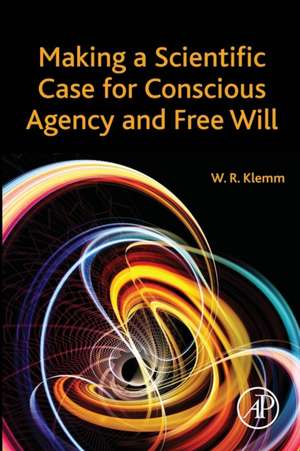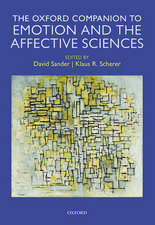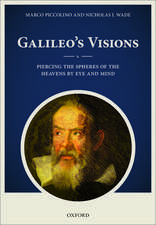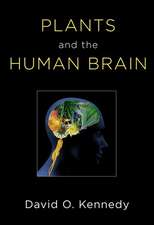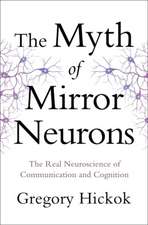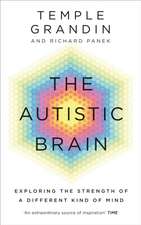Making a Scientific Case for Conscious Agency and Free Will
Autor William R. Klemmen Limba Engleză Paperback – 14 feb 2016
All humans have the sensation that they consciously will certain things to happen and that, in the absence of external constraints, they are free to choose from among alternatives. This notion of free will is deemed obvious by the average person based on common experience. Free will is frequently defended with arguments stemming from social, legal, philosophical, and religious perspectives. But these arguments appeal to consequences—not causes—of choices and decisions. In the past 3 decades, debate has raged within the scientific community over whether free will is in fact an illusion. Because free will would require conscious agency, the supporting corollary is that consciousness itself cannot do anything and is merely an observer rather than an actor.
- Considers arguments for and against free will from religious, social, legal, and neuroscience perspectives
- Provides thorough coverage of the manifold human behaviors that can be explained only by free will, from consciousness to creativity
- Outlines future directions for further neuroscience research into the topic
Preț: 235.98 lei
Nou
Puncte Express: 354
Preț estimativ în valută:
45.16€ • 47.26$ • 37.58£
45.16€ • 47.26$ • 37.58£
Carte tipărită la comandă
Livrare economică 24 martie-07 aprilie
Preluare comenzi: 021 569.72.76
Specificații
ISBN-13: 9780128051535
ISBN-10: 0128051531
Pagini: 118
Dimensiuni: 152 x 229 x 9 mm
Greutate: 0.19 kg
Editura: ELSEVIER SCIENCE
ISBN-10: 0128051531
Pagini: 118
Dimensiuni: 152 x 229 x 9 mm
Greutate: 0.19 kg
Editura: ELSEVIER SCIENCE
Public țintă
Advanced students and researchers in cognitive neuroscience, cognitive science, and other areas related to consciousness, as well as those interested in neuroethics, neurophilosophy, neurotheology, neuropsychology, and the intersection between neuroscience and the law.Cuprins
1. The Scientific Case Against Free Will2. Misuse of Religious, Social, and Legal Arguments3. Free-Will-Dependent Human Characteristics and Behaviors4. Neuroscience to the Rescue5. Conclusion6. Sources
